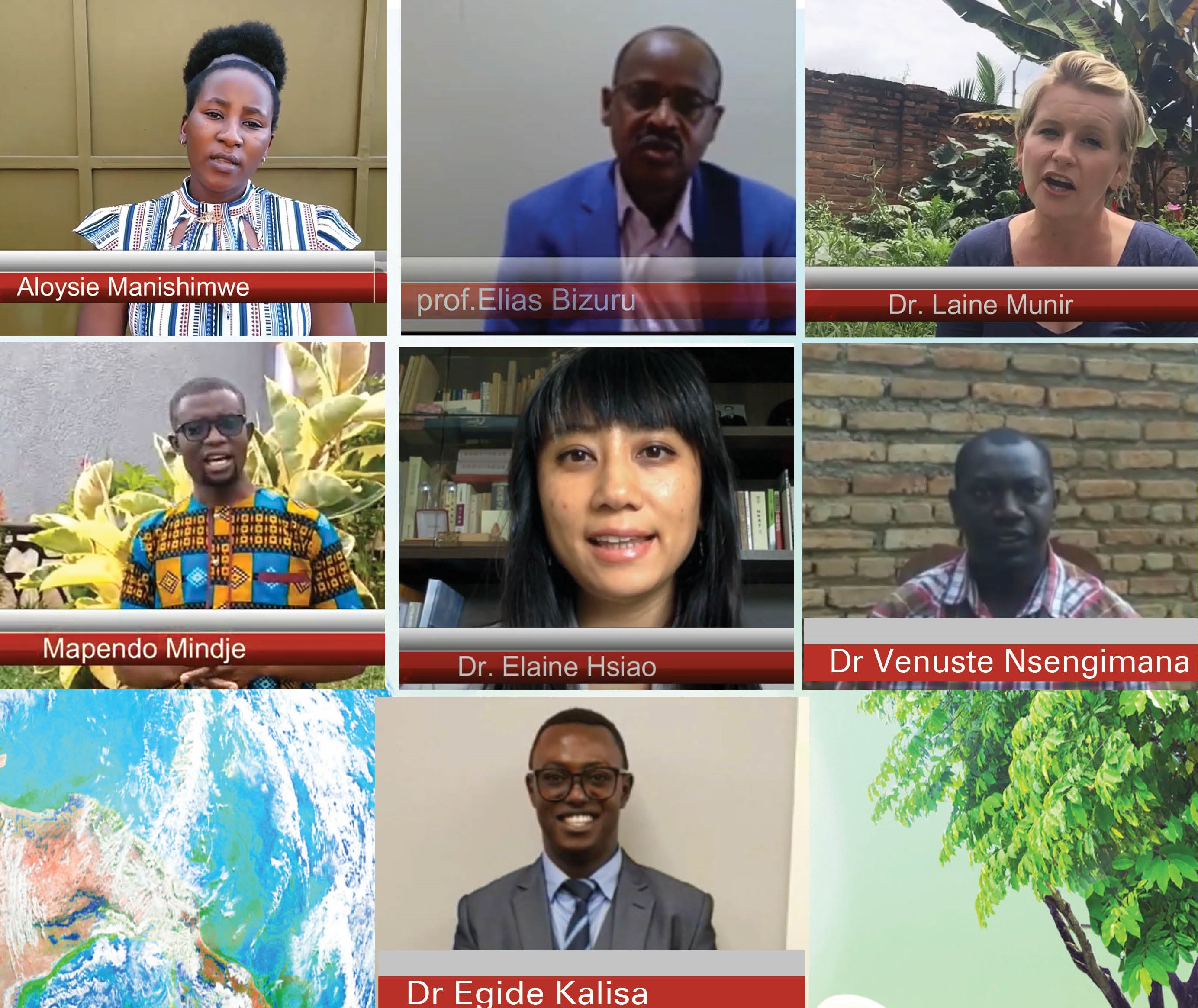Postgraduate students equipped with policy skills in connection to climate change and sustainable Dev’t
- 15-07-2019
- 517
The UR Center of Excellence in Biodiversity and Natural Resource Management created a video to honor Earth Day which was held on 22 April 2020. The video is a compilation of Research Associates and Fellows as well as UR academic staff who delivered video recorded messages related to earth protection and fighting climate change through various thematic areas.
Prof Elias Bizuru from UR College of Science and Technology talked about Climate change and diversity with emphasis on species and ecosystem who are mostly threatened by climate change with very limited options. He noted that species being the victims of climate change opt to shift their distribution and migrate so that they can remain at equilibrium with climate. This is in case species are unable to adapt to climate change phenotypic plasticity or through genetic changes.
He added that the impact of climate change will also affect nutrition as some areas in the world will likely be hotspot of food insecurity while some other regions would face a serious undernutrition. According to him if nothing done in Rwanda, the country could be among those that will experience food insecurity.
Prof Bizuru also revealed that in some areas, climate change is a source of conflict and fierce wars as it is the case of Darfur. He therefore called for contributing in mitigating or adapting to climate change because not only biodiversity will be affected but security will also be at stake.
Aloysie Manishimwe is assistant lecturer at the UR College of Science and Technology. She argues that women can contribute in climate change mitigation in various ways as they are responsible of many activities in their household such as greening and cleaning their homes, cooking and farming.
“If women can choose to plant trees around their home, choose more clean energies or clean cooking stoves that would be a huge contribution against climate change” she said.
In her message, Dr Laine Munir a senior research fellow at UR Center of Excellence in Biodiversity and Natural Resource Management focused on the relationship between gender and environment change.
According to Munir, climate change mostly affects farmers in Africa as 70% of Africans rely on agriculture for their livelihood. She noted that during environment changes due climate, agricultural women and men in rural areas are particularly vulnerable because they are statistically less likely to have saving and liquid assets that would support them in an instance of environmental change or financial shock.
“Our research indicates that men and women in Africa are less likely to engage in meaningful decision making about how land is used and overall women tend to have less financial resources than men which would help them to avoid economic vulnerability due to climate change reasons” Munir said.

Speakers who participated in the video. Their full presentation can be found in the link below
More details and more interventions, browse the video in the link produced by Christian Mukama, a student in communication at UR : https://www.youtube.com/watch?v=gXpjOjQjiBk&feature=youtu.be